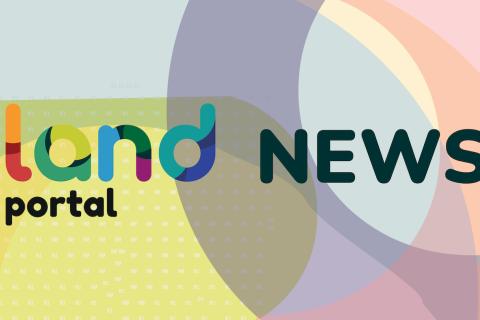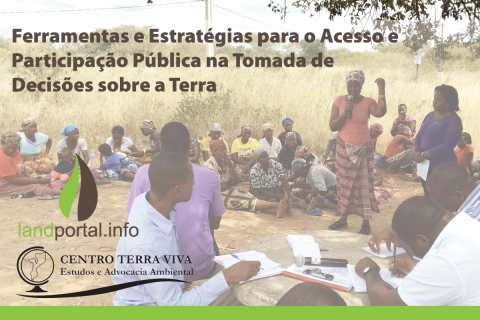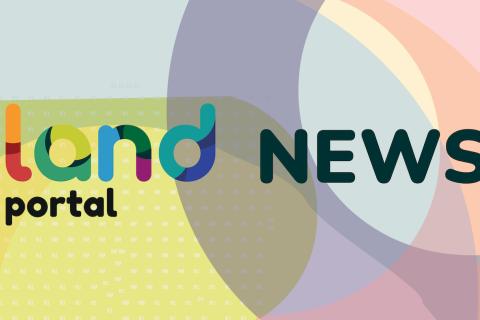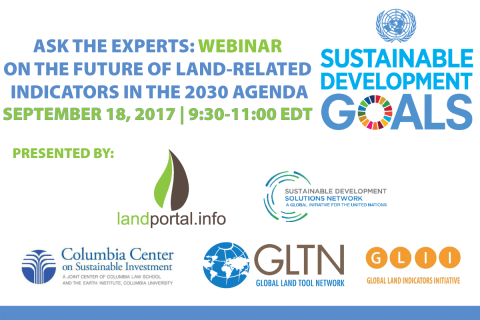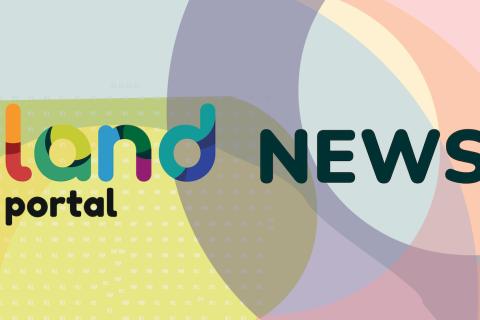Neil Sorensen joined the Land Portal as its Communications Specialist in October 2015. He has extensive experience leading communications for international organizations and developing relationships with civil society, donors, intergovernmental agencies, the media and the private sector. Previously, Neil worked for the International Fund for Agriculture Development (IFAD) as a Governing Bodies Officer and Strategic Adviser to the Secretary of IFAD. He has also led communications for three international organizations, including the International Land Coalition, the International Federation of Agricultural Producers (IFAP) and the International Federation of Organic Agriculture Movements (IFOAM). He holds a Master’s degree in Global Diplomacy from the University of London School of Oriental and African Studies (SOAS) as well as a Bachelor’s degree with a double major in German and Sociology from St. Cloud State University.
Details
Location
Contributions
Displaying 821 - 830 of 1144Brazilian officials seek land rights for rainforest dwellers at risk
RIO DE JANEIRO (Thomson Reuters Foundation) - Local officials in Brazil said on Friday they asked the government to offer property deeds to thousands of people living without formal titles in the Amazon rainforest who advocates say are at risk of losing their rights to live on the land.
The request by the Federal Prosecutor’s Office in Para state would affect an area of 2,500 square kilometers (965 square miles), part of a region called Marajó Archipelago that is owned by the federal government.
Conference on Land Policy in Africa (CLPA-2017)
RELEASE: Are your land rights secure?
Dashboard tracks land and the Sustainable Developing Goals (SDGs)
Apply to participate in Inter-agency and Expert Group on SDG Indicators
The sixth meeting of the Inter-agency and Expert Group on Sustainable Development Goal Indicators (IAEG-SDGs), will be held from 11 to 14 November 2017 in Manama, Kingdom of Bahrain. The meeting will be hosted by The Bahrain Center for Strategic, International and Energy Studies (DERASAT).
Deadline: 06/09/2017
Ask the Experts: Webinar on the Future of Land-Related Indicators in the 2030 Agenda
Presented by: Land Portal Foundation, Global Land Tool Network (GLTN), and the UN Sustainable Development Solutions Network’s Thematic Network on Good Governance of Extractive and Land Resources
Please register here.
Land Portal Foundation and Advocates Coalition for Development and Environment (ACODE) launch Uganda Country Portfolio that identifies key land governance challenges and trends
Post-colonial land reforms in Uganda leave many issues unresolved, while evictions, land conflicts and dispossession remain common
Land is an essential asset to the people of Uganda. With a rural population constituting over 83% of the total population and an economy dominated by smallholder farming, Uganda must prioritize responsible land governance to achieve sustainable development.
Land Governance Multi Stakeholder Dialogue
The Dutch Land Governance Multi-Stakeholder Dialogue (LG MSD) is a dialogue jointly organized by the Dutch Ministry of Foreign Affairs, companies, financial institutions, civil society organizations and knowledge institutes. Its organizing committee consists of representatives from Oxfam, Both ENDS, FMO, Actiam, APG, Utrecht University and the Dutch Ministry of Foreign Affairs.
Land and Poverty Conference 2018: Land Governance in an Interconnected World
The Land and Poverty conference will present the latest research and practice on the diversity of reforms, interventions, and innovations in the land sector around the world. The 2018 conference theme will iw Land Governance in an Interconnected World
About the SDG Land Tracker
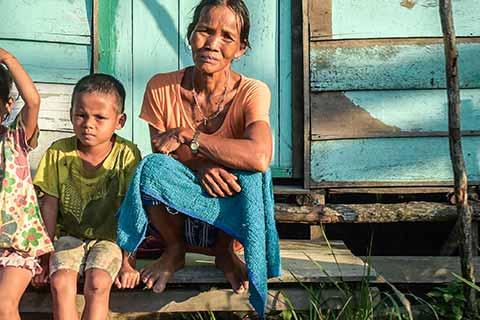
The broad range of data and information needed to effectively monitor land-related indicators in the Sustainable Development Goals (SDGs) framework has been either inaccessible, unavailable, or dispersed across various repositories. In the wake of the UN Decade of Action, land actors globally including the custodian agencies responsible for monitoring and reporting on land indicators in the SDGs framework are challenged to step up their efforts to accelerate access to disaggregated land data for policy decisions that leave no one behind. Access to regular, quality, and sex-disaggregated land data is key to measuring progress on key targets in the SDGs including those related to fighting poverty, increasing food security, gender equality and rights, access to adequate housing and achieving land degradation neutrality.
The land-related indicators are all classified as Tier II or I. Tier II means that indicators have conceptual clarity, an internationally agreed comparable methodology and standards for data collection and computing the indicators as developed by custodians in collaboration with NSOs, land administration institutions and stakeholders. To achieve Tier I status, at least 50 percent of all countries in all regions including small islands and states need to be reporting on the indicators regularly. In addition to the challenges of upgrading to Tier I, the COVID-19 pandemic has impeded the data collection, monitoring, and reporting of custodian agencies, organisations, and other data agencies.
Originally established by the Land Portal Foundation and the Global Land Tool Network (GLTN) in 2017 with the financial support of the Omidyar Network and long-term support of the UK's Foreign, Commonwealth & Development Office (FCDO), the SDG Land Tracker is maintained with ongoing support from Germany's Deutsche Gesellschaft für Internationale Zusammenarbeit (GIZ).
Indicator narratives are updated in concert with custodian agencies, which are United Nations bodies and other international organizations responsible for compiling and verifying country data and metadata, and for submitting the data, along with regional and global aggregates, to the United Nations Statistics Division (UNSD).




